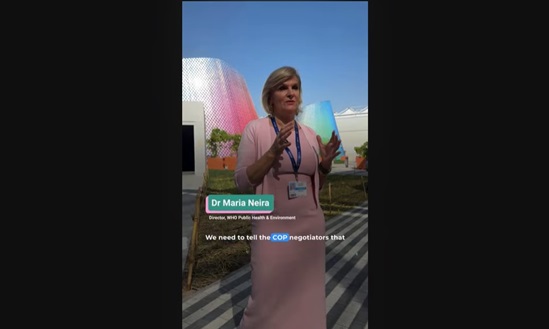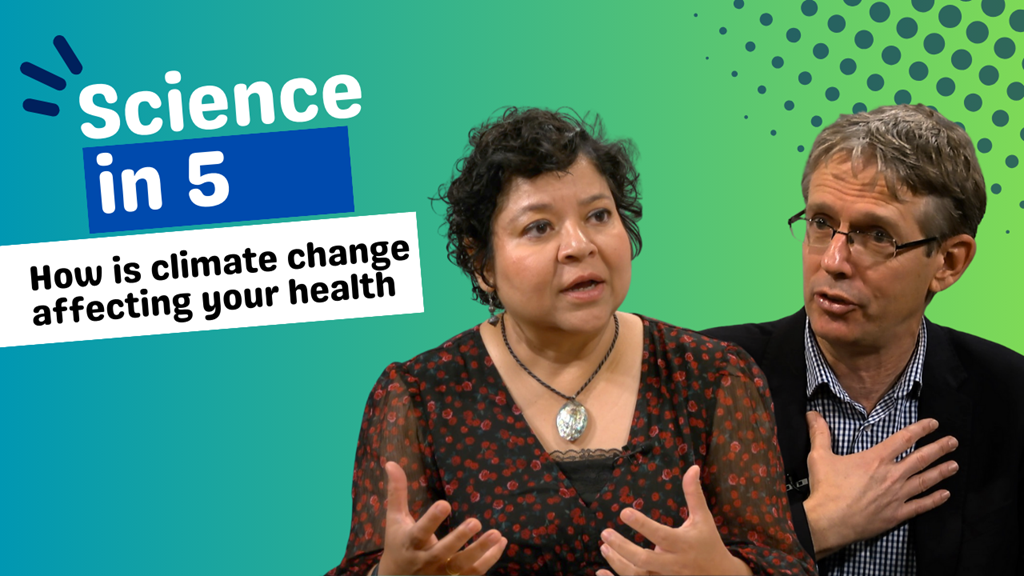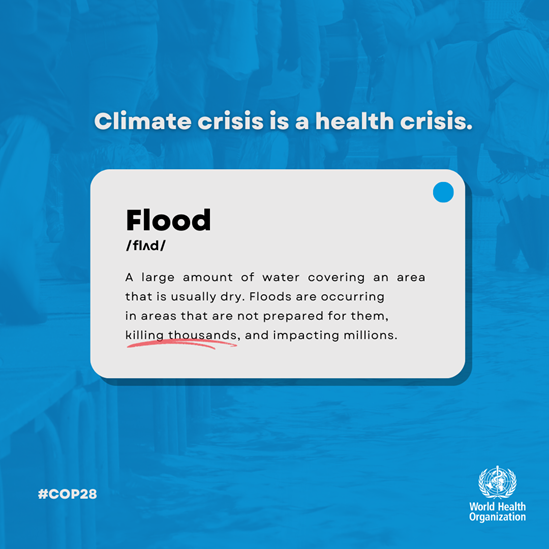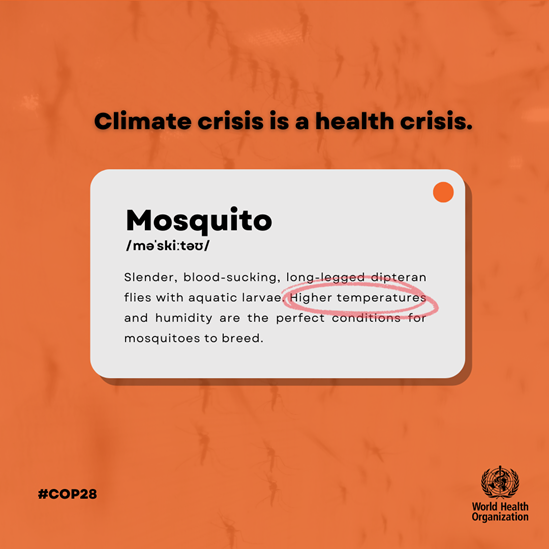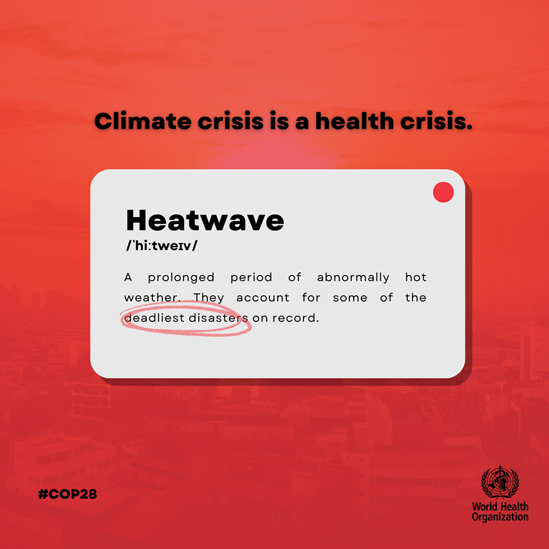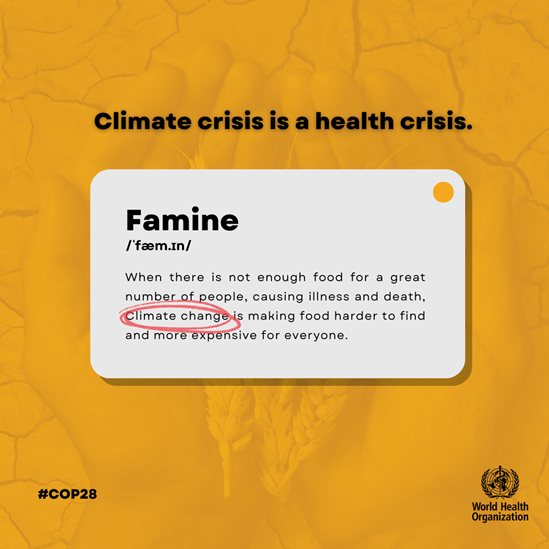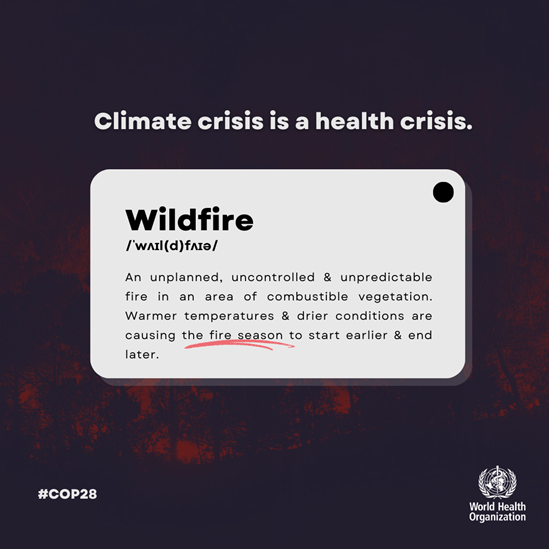Episode #107 - How is climate change affecting your health?
Alternative media
Related links
Transcript
VGS We are living with climate change every day and it is already impacting our health. What are the future scenarios and what can each of us do to cope with the impact of climate change?
We are talking to DCL today. Welcome, Diarmid. Diarmid, talk to us about the impact of climate change on our health.
DCL So some of the effects are really direct. So sometimes it's just too hot to be healthy. So we know that climate change is increasing temperatures, particularly in cities. And anybody with a pre-existing condition or if you are older or if you have, for example, heart disease, unfortunately, you're more likely to get sick when temperatures are very high or even to die in extreme high temperatures. So that's a very direct effect.
We also see the effects of climate change on the environment. So those increased temperatures and changes in rainfall patterns in some parts of the world are drying out the environment, drying out forests, making it easier to have more and stronger severe wildfires. Now wildfires kill people directly.
They also lead to massive levels of air pollution. And we know that air pollution is one of the biggest killers we have. Kills about 7 million people a year around the world, about a death every five seconds. So there are those more direct effects.
But we also see climate change is making it easier to transmit infectious diseases carried by mosquitoes like malaria or dengue, or diseases carried in water, diarrheal disease, cholera and so on.
But the ultimate impact of climate change is in actually making some parts of the world uninhabitable. So either it becomes too dry to maintain agriculture or through increased sea level rise. we are actually starting to submerge islands, including some whole countries. And you can't really maintain good health when you're forcing people away from where they live.
VGS So Diarmid, talk to us about scenarios that we are staring at. How will our health systems, our hospitals, primary health care centers, the entire health infrastructure — how will we cope with these impacts of climate change on our health?
DCL Well, the scenarios are not good news because and we already know we've already seen a glimpse of this. So those increased temperatures I was talking about. The record temperatures that we're now seeing around the world in a couple of decade's time, those will be the norm. And so we've experienced record temperatures in Europe. We've seen heatwaves across Asia, and we've seen directly people turning up overwhelming hospitals and in some cases in some of the historic events, even morgues overflowing with bodies. So unfortunately, that's part of the scenarios that we see for the future.
We also see more of the world being suitable for malaria transmission or for dengue transmission. So we have to be able to respond to this. And we're unfortunately committed to a certain amount of climate change because of the greenhouse gases that have already been emitted.
So we need to develop the plans and put into place the investments in our hospitals, in the training of our health workforce, in order to allow them to protect people from the impacts of climate change that we're already seeing. And part of preparing our health systems for the impacts of climate change is also making sure that they're resilient to the impacts of climate change.
And in fact, in many cases, we can do two good things for the price of one by, for example, providing renewable energy through solar panels, for health care facilities, which is more resilient to climate risks. It's cheaper and it also reduces the environmental impact.
VGS So these are very overwhelming scenarios that you've just painted. What can we do as individuals to cope and to protect ourselves in these future scenarios?
DCL Well, the good news is there's a great deal that we can do. And part of it is just being aware of the health risks of climate change. So in the places that we live in northern Europe, those populations have not previously been used to the kinds of temperatures that we've previously experienced. Now, if we know that it's a potential risk to your health, if it's an extremely hot day, then it's possible to protect yourself by hydrating, by staying out of the sun, by paying attention to weather warnings. So we all, as individuals, have to become a bit climate smarter in order to protect our health. So that's number one.
The second thing that we can do is that many of the things that are important to reduce climate change are really good for our health. And we actually say that the Paris Agreement to limit climate change is potentially the most important health agreement of the century, because if we are able to make a shift to a clean energy system or even as individuals, if we're able to, for example, walk or cycle to work or school or to improve our diet so that they're more sustainable and healthy, that's really good for the planet. But much more importantly, and closer to home, it's really good for your health. It's not all on you as an individual.
So one of the things we can do as individuals is to support policies and to support leaders who are able to make wise investment decisions that improve people's health, but also protects the planet.
VGS Thank you Diarmid. That was Science in 5 today. Until next time, then stay safe, stay healthy and stick with science.

